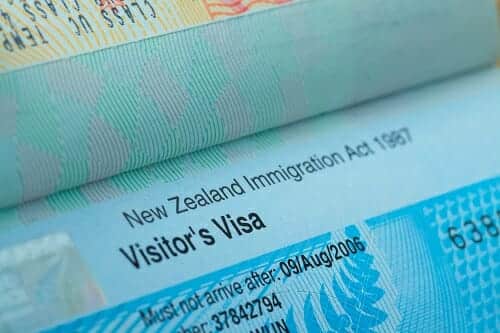New Work Visa Rules Could Hinder Expats

Jobseekers could find it harder to land expat assignments as the US, Australia and New Zealand bring in new expat visa rules. Temporary skilled worker laws are facing change.
Australia announced that the Temporary Work (Skilled) visa (known as the 457 visa) will be abolished and replaced with a new Temporary Skill Shortage (TSS) visa in March 2018.
The TSS visa programme will include a short-term stream of up to two years and a medium-term stream of up to four years and will support businesses in addressing skill shortages in their workforce but will contain a number of safeguards which prioritise Australian workers.
This new visa is part of the government’s reform package to strengthen the integrity and quality of Australia’s temporary and permanent employer-sponsored skilled migration programmes.
Key reforms include:
- Introducing the temporary skill shortage visa with new requirements, including:
- New, more targeted occupation lists which better align with skill needs in the Australian labour market
- A requirement for visa applicants to have at least two years’ work experience in their skilled occupation
- A minimum market salary rate which ensures that overseas workers cannot be engaged to undercut Australian workers
- Mandatory labour market testing, unless an international obligation applies
- Capacity for only one onshore visa renewal under the short-term stream
- Capacity for visa renewal onshore and a permanent residence pathway after three years under the medium-term stream
- The permanent residence eligibility period will be extended from two to three years
- A non-discriminatory workforce test to ensure employers are not actively discriminating against Australian workers
- Strengthened requirement for employers to contribute to training Australian workers
- The Department of Immigration and Border Protection will collect tax file numbers and data will be matched with the Australian Tax Office’s record
- Mandatory penal clearance certificates to be provided.
- Tightening eligibility requirements for employer-sponsored permanent skilled visas, including:
- Tightened English language requirements
- A requirement for visa applicants to have at least three years’ work experience
- Applicants must be under the maximum age requirement of 45 at the time of application
- Strengthened requirement for employers to contribute to training Australian workers
- Employers must pay the Australian market salary rate and meet the temporary skilled migration income threshold.
- Concessions for regional Australia will continue to be available:
- Employers in regional Australia will continue to have access to occupations under the temporary and permanent visas, to reflect their skills needs.
- Existing permanent visa concessions for regional Australia, such as waiving the nomination fee and providing age exemptions for certain occupations, will be retained. Consideration will be given to expanding the occupations in regional Australia that are exempt from the age requirement.
- Significantly condensing the occupation lists used for skilled migration visas, including the subclass 457 visa, from 19 April 2017.
New Zealand has similarly changed its work visa rules. It has said it will tighten access to its skilled work visas.
“These changes are designed to strike the right balance … and encourage employers to take on more Kiwis and invest in the training to upskill them,” immigration minister Michael Woodhouse said in a statement, using the colloquial term for New Zealand citizens.
As reported in the Daily Telegraph, under the changes, employers would need to provide a minimum income of NZ$49,000 (£27,000) for anyone entering on a prioritised ‘skilled’ visa. Anyone earning more than NZ$73,000 would be classed as highly skilled.
The immigration minister said the government would also introduce a new three-year limit for workers in New Zealand on temporary visas, followed by a minimum stand-down period before they could apply again and that workers in seasonal industries would also have their visas shortened to the length of their work.
In the USA the US Citizenship and Immigration Services (USCIS) has announced multiple measures to deter and detect H-1B visa fraud and abuse. The H-1B visa programme was designed to help US companies recruit highly-skilled foreign nationals when there is a shortage of qualified workers in the country. But the US government reckons the system is being abused to the detriment of American workers.
The USCIS will now take a more targeted approach when making site visits across the country to H-1B petitioners and the worksites of H-1B employees. USCIS will focus on:
- Cases where USCIS cannot validate the employer’s basic business information through commercially available data
- H-1B-dependent employers (those who have a high ratio of H-1B workers as compared to US workers, as defined by statute
- Employers petitioning for H-1B workers who work off-site at another company or organisation’s location.